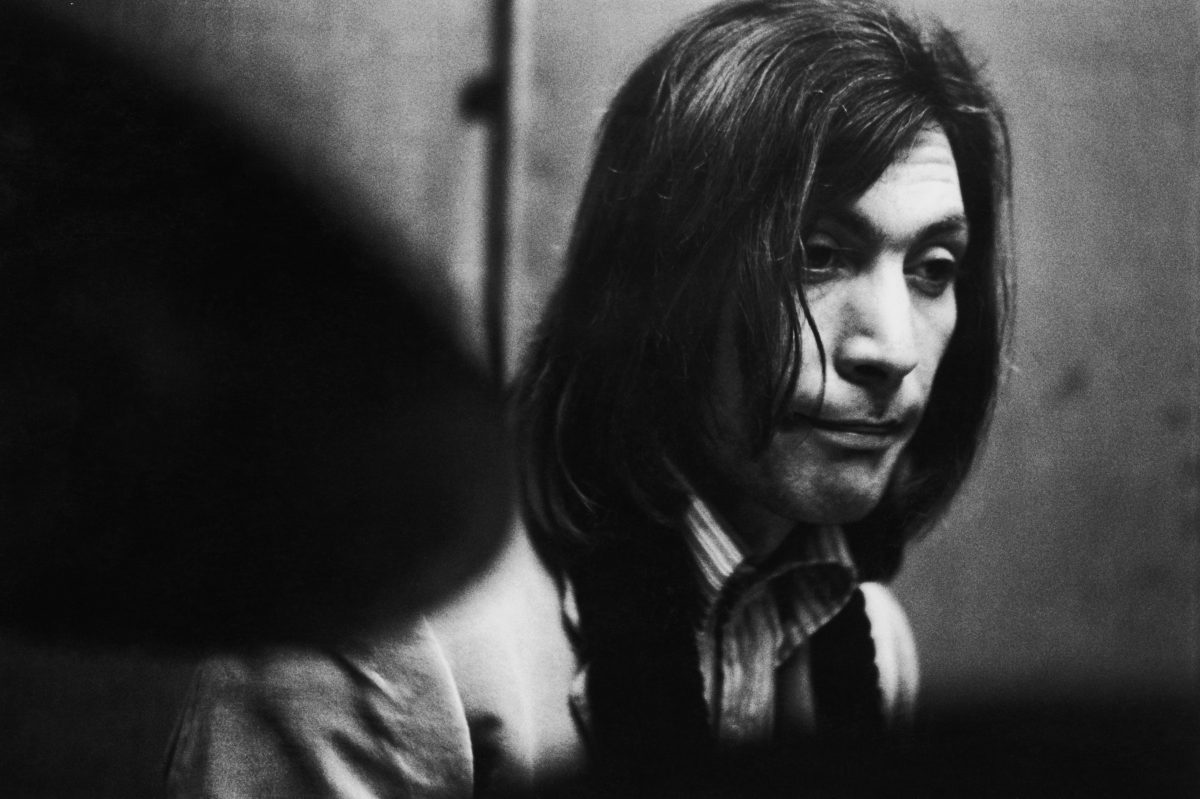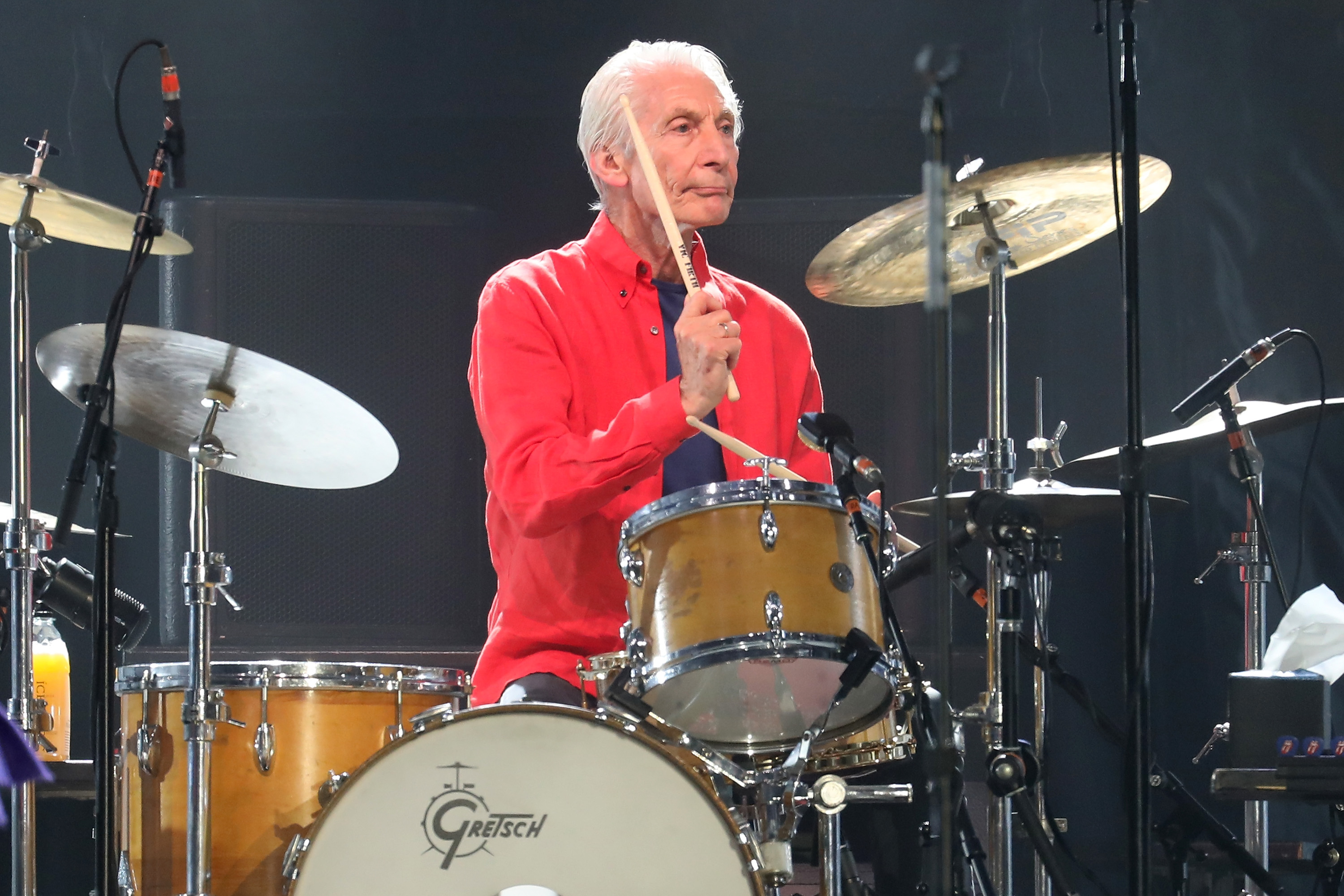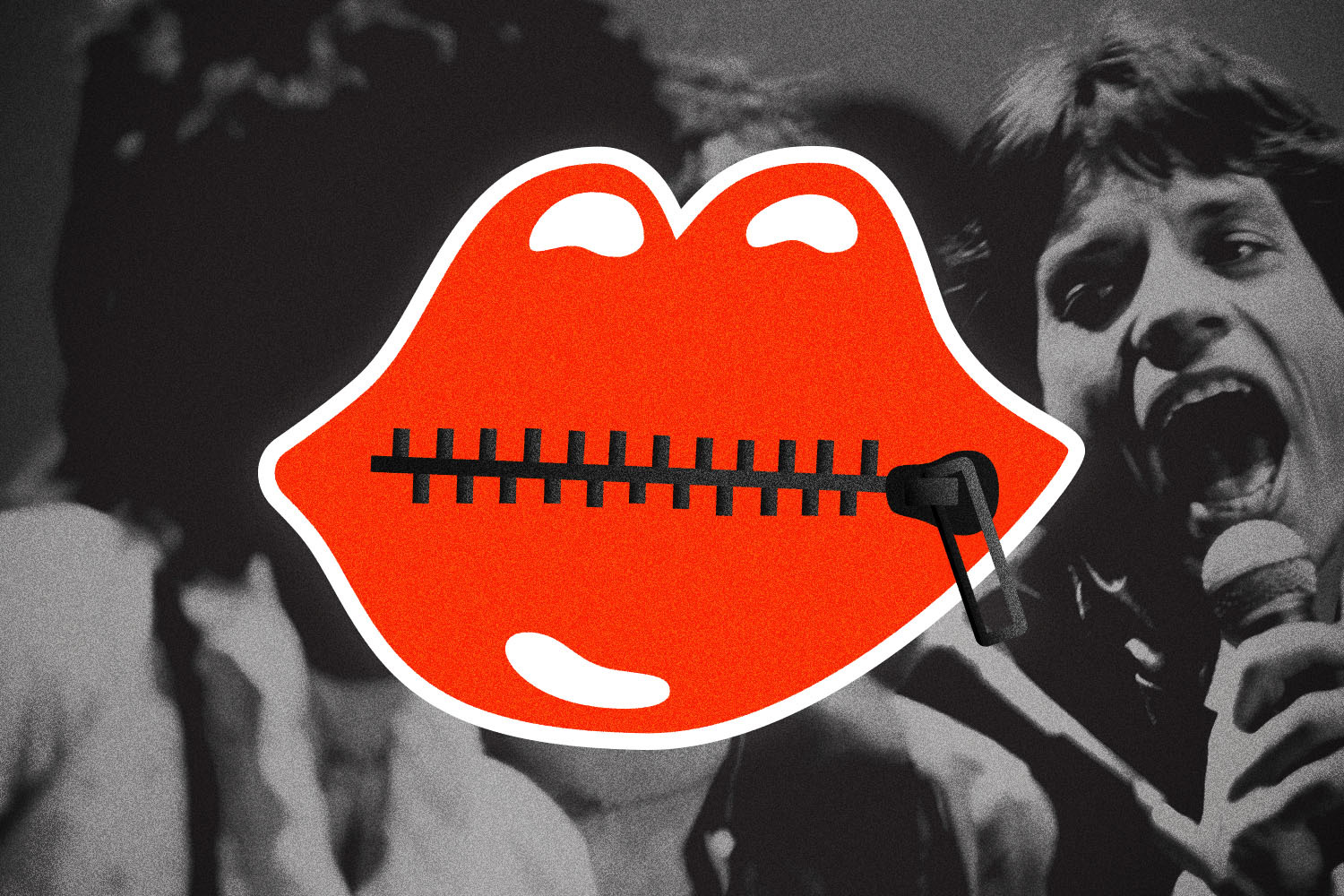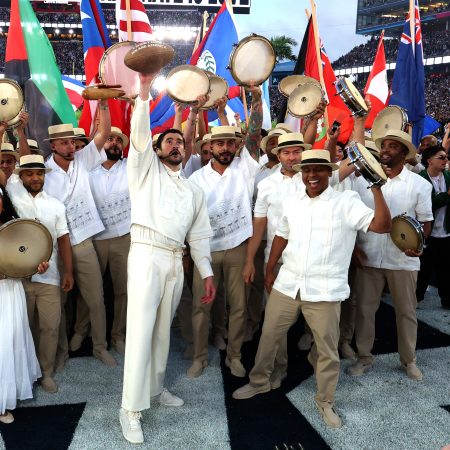When you watch the “Start Me Up” video, it’s natural for your eye to go straight to Mick Jagger. He’s preening and peacocking, strutting around and pulling the kind of faces that have been spoofed by impressionists for decades now. Keith Richards broods, Ronnie Wood gamely plays along and Bill Wyman stands in the background looking uncomfortable. But then there’s Charlie Watts, seated behind the drumkit, shooting droll, knowing glances at the camera like Jim in The Office. He chuckles to himself after a particularly over-the-top Jagger move — never missing a beat, of course — and elsewhere, he makes eye contact with Wyman and smirks, flashing him a look that says, “Can you believe this guy?”
It’s not the only time the legendary Stones drummer, who passed away yesterday at the age of 80 after an undisclosed illness, can be seen reacting to his singer. In the 1973 promo video for “Angie,” he tries to stifle a laugh and avoid ruining the mood during the emotional ballad, allowing the tiniest smile to creep across his face and then inhaling deeply as if to gather himself and reabsorb it. In the “Worried About You” video, he looks rather amused as he half-heartedly twirls his drumsticks, perhaps grinning at the idea that he’d allow himself such a rock-star affectation, later taking another deep breath and rolling his eyes at Jagger’s exaggerated falsetto. It’s typical of Watts, the cool, calm and collected glue that held the group together by acting as a grounding force and injecting a little self-awareness into a band full of outsize egos ready to go off the rails at any moment.
Those little laughs and looks at the camera give us permission to laugh with the Stones instead of at them, and they’re proof that while the Glimmer Twins got most of the notoriety, Charlie Watts was quietly the coolest member. He married his wife Shirley just a year after he joined the group in 1963, and by all accounts remained faithful to her throughout decades of tours. While his bandmates were out partying with groupies and getting into god-knows-what, Watts was busy sketching every hotel bed he ever slept in. He was wholly disinterested in the rock-star lifestyle — “Playing the drums was all I was ever interested in, the rest of it made me cringe,” he once said — and he approached his role in the group with a sort of detached amusement and laidback confidence that earned him respect and inspired his bandmates to constantly seek out his approval. Being Keith Richards is cool, but being the guy who intimidates Keith Richards? That’s fucking cooler.
Watts’s jazz background and fondness for bespoke suits lent him a certain elegance, but it’s important to note that while he’s widely recognized as one of the greatest rock drummers of all time (“If Charlie don’t get into it, then I haven’t written something that the Stones can get a groove going on,” Richards once said), he would often deflect praise. Instead, he used his platform to shine a light on other drummers, like Stax session drummer Al Jackson, and he always went out of his way to insist that what he did with the Stones wasn’t especially difficult.
His drumming with the Stones is deceptively simple-sounding, and he rarely took solos. “I was always brought up under the theory the drummer was an accompanist,” he once said, later adding that “I don’t like drum solos. I never take them. I admire some people who do them, but generally, I don’t like them. It’s not something I sit and listen to. I prefer drummers in the band playing with the band.”
He was happiest out of the spotlight, always a little disdainful of the media circus and rock-star posturing that surrounded him, but his playing is the heart of the Stones’ catalogue, and while he always maintained a healthy level of humility, he never let himself be walked over or mistreated. Perhaps the most famous anecdote about him is the one recounted in Richards’s autobiography Life in which Watts punched Jagger in the face for referring to him as “my drummer.”
As the story goes, a drunken Jagger repeatedly called Watts’s hotel room at around 5 a.m. after a show in Amsterdam in 1984, asking “Where’s my drummer?” over the phone. Watts hung up, got out of bed, shaved, put on a suit and freshly shined shoes, knocked on Jagger’s door, grabbed him by the lapels and clocked him, saying, “Never call me your drummer again. You’re my fucking singer.” (As Richards describes it, he hit Jagger so hard that he “fell back onto a silver platter of smoked salmon on the table.”)
It’s a rare example of the famously unflappable Watts losing his cool, but it’s also a reminder that though he was often soft-spoken and eager to deflect compliments, he knew his value to the band, and he refused to entertain rock cliches like a lead singer with an uncontrollable ego, nipping that in the bud with one blow. So here’s to Charlie Watts, an effortless icon — drummer for the Rolling Stones, but never the Rolling Stones’ drummer.
This article appeared in an InsideHook newsletter. Sign up for free to get more on travel, wellness, style, drinking, and culture.


















